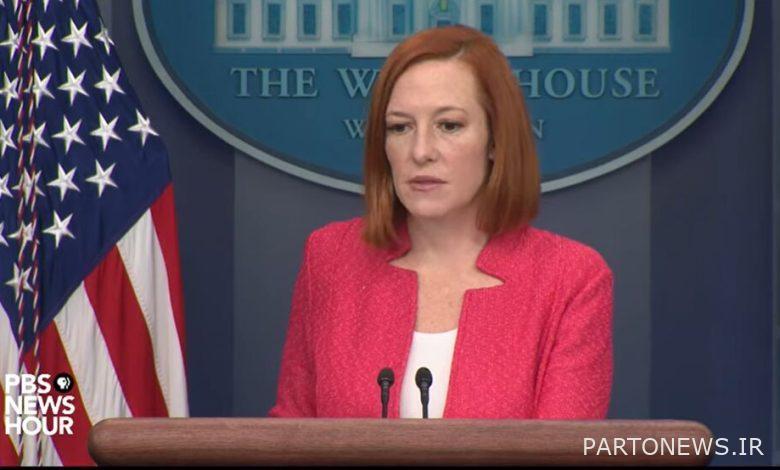White House spokesman: The Vienna talks are at a critical juncture

“This is a critical time,” White House spokesman Jen Saki told a news conference in Washington on Friday. Although progress has been made in the negotiations, we must choose another path if we do not soon reach a common understanding on reciprocity.
The White House official has repeatedly claimed that US President Joe Biden will not allow Iran to acquire a nuclear weapon, despite the peaceful nature of Iran’s nuclear program and its approval by the International Atomic Energy Agency.
In another part of his remarks, Jen Saki referred to US Secretary of State Anthony Blinken’s interview with US National Radio yesterday and said: “As the Secretary of State announced, Iran has made progress in its nuclear program and the reason for this progress is the government’s decision.” The former is the US to pull out of the Iran nuclear deal. Despite the previous government’s promises that Iran will not progress or a better agreement will be signed with this country, it has happened contrary to these promises.
Claiming that the US preference is diplomacy, Jr. Saki, as always, insisted on continuing the policy of pressure on Iran at the negotiating table and using the deadline tactic: A few weeks ago, the president asked his team to prepare various options. They have done that, and it is clear that we have always preferred diplomacy.
According to an agreement reached between the heads of delegations, the senior negotiators of the Islamic Republic of Iran and the three European countries will return to the capitals temporarily this evening (Friday) to discuss their political positions and some consultations.
The break will last for two days, and the expert talks will continue without interruption, and the return of the senior negotiators does not mean the end of the eighth round of talks.
Negotiations for the lifting of sanctions, which began on January 26, 1400, are moving forward but cautiously.
In an interview with US National Radio, US Secretary of State Anthony said in an interview with US National Radio that the decision by the former US administration to withdraw from the UN Security Council was one of the worst decisions in the country. It was Washington’s recent foreign policy.
“We still believe that if we can return to Burjam in the coming weeks, not in the coming months, it will be the best course of action for our security, our partners and our allies in the region,” he said. But time is very, very short.
Continuing the West’s fear of the progress of Iran’s peaceful nuclear program, Blinken claimed that Iran was getting closer and closer to the point where it could produce the fissile material needed to make a nuclear bomb in a very, very short time.
He added that at the same time, they are making progress in their nuclear program that will be increasingly difficult to reverse as they learn new things and do new things that result in their exit. Restrictions under that agreement.
Blinken argued, therefore, that there are still weeks to see if we can return to mutual commitment to the UN Security Council. This will be the best outcome for US security, but if we can not do that, we will consider other options and steps in coordination with the countries concerned.
The Axis website has previously quoted two informed sources as saying that the administration of US President Joe Biden thinks that there are only a few weeks left until the crucial decision: either an agreement will be reached and the United States will reach a nuclear deal. It returns or the talks fail and the government moves to put more pressure on Iran.
Joe Biden’s Democratic government, after coming to power in January 2021, has condemned the unilateral action of its former government to leave Borjam, but so far they have not taken any scientific action to compensate for the past mistake and violation of their country’s debt.
Iranian Foreign Minister Hossein Amir-Abdollahian told Al-Jazeera: “We do not yet see any new initiatives from the West in the Vienna talks, so they do not seem ready to return to their commitments quickly, so we still feel Westerners procrastinate.
.

